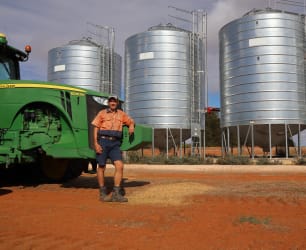NEW research by South Australian plant scientists is investigating ways wheat responds to common stresses such as poor soil health.
Led by Flinders University, the research is aiming to understand how signalling a molecule – known as gamma aminobutyric acid (GABA) – may steady proteins in wheat plants dealing with a range of extremes.
The research is published in the Plant Science section of the international Biology journal.
“This emerging research suggests that GABA is a signal in plants, not only regulating numerous normal developmental processes such as root growth, stomatal aperture and pollen tube germination, but also responses to stresses such as aluminium toxicity and salinity,” said lead author Dr Sunita Ramesh.
“We understand this signalling molecule in animals but not as much in plants.
“Earlier research showed that in response to stress, GABA regulates the activity of ion transport proteins and under certain conditions these proteins may also transport GABA in plants. To understand the role of GABA in stress tolerance, it is essential to distinguish between the two transport modes of these proteins.”
Using an aluminium-tolerant wheat variety (Triticum aestivum), researchers from Flinders University, the University of Adelaide and Waite Research Institute experimented with a plant-derived pharmacological agent – picrotoxin – to distinguish between protein transport capabilities involved in conferring aluminium tolerance.
Study outcomes indicate that picrotoxin blocks transport of negatively charged ions through the protein, but allows transport of GABA, and that the transport is dependent on the conformation of the protein.
Co-author Abolfazl Dashtbani-Roozbehani said the experiment is a stepping stone in understanding the role of other agents to reduce or enhance GABA activity in plant crops.
Researchers hope new investigations into understanding the role of GABA could help identify wheat cultivars and other crops that are more resilient to common farm problems, such as extreme temperatures, salinity, aluminium toxicity in acid soils, and even drought.






